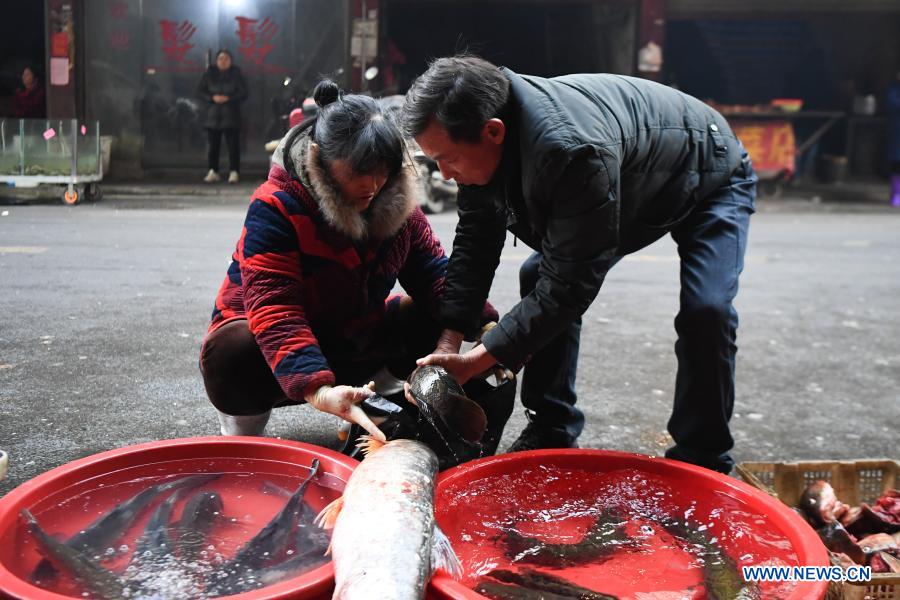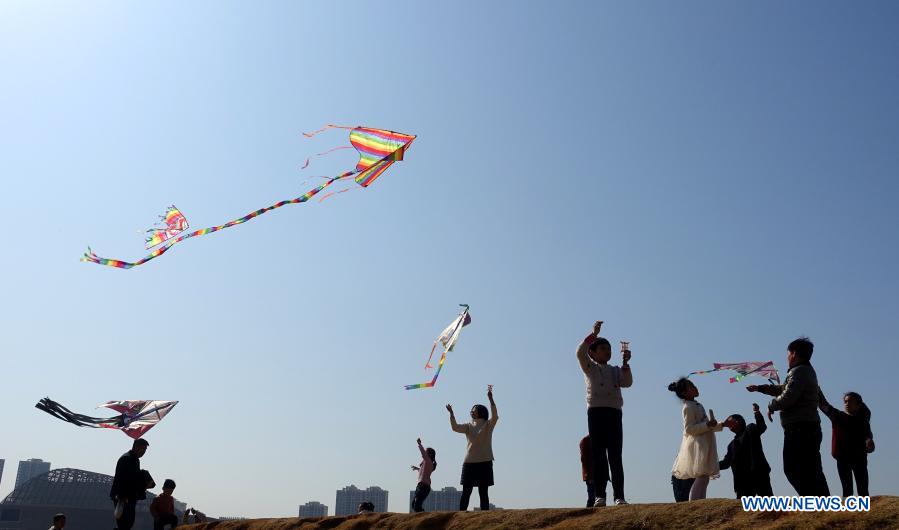
Shi Zhongfang buys fish for cooking at a market in Yuanjiang City, central China's Hunan Province, Dec. 21, 2020. Shi Zhongfang, a former fisherman in Lianhua'ao Island which is located in the middle of Dongting Lake, now runs a restaurant featuring the traditional fish cuisine of fishermen in Yuanjiang City. He was the seventh generation fisherman in his family and started fishing at the age of 14. His life has changed in the wake of a fishing ban. According to the central government's plan, a complete 10-year fishing ban is imposed in key waters of the Yangtze, China's longest river starting from Jan. 1, 2021. In recent years, the province-level regions along the river have been stepping up efforts to protect the "mother river" of the Chinese nation. Hunan Province, located in the river's middle reaches, has closed and dismantled all 39 illegal wharves along the mainstream of the Yangtze River while restoring the ecological environment there. The province has also planted over 1,300 hectares of forest along the river. In 2019, the average concentration of total phosphorus in the area of Dongting Lake, China's second-largest freshwater lake in the river's basin, dropped by 41 percent compared with that in 2015. With improving water quality, the lake also saw more than 246,000 wintering waterbirds in the year, the highest number in the past 10 years. While strictly implementing the fishing ban policy, the regions have already rolled out a slew of measures to take care of the fishermen's welfare. In Hunan, the government helped more than 16,000 fishermen change jobs, over 97 percent of the total who had the intention of employment. All the fishermen who meet the conditions in the province have been included in the basic old-age insurance system. "Moving out from the island was hard for me," said Shi Zhongfang. "But the future generations will be benefited from what we are doing now." (Xinhua/Xue Yuge)













